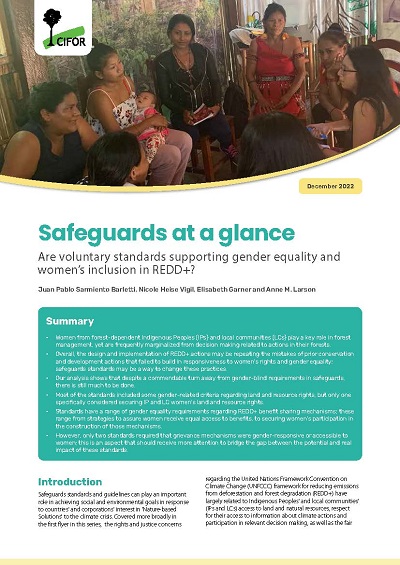Summary
- Women from forest-dependent Indigenous Peoples (IPs) and local communities (LCs) play a key role in forest management, yet are frequently marginalized from decision making related to actions in their forests.
- Overall, the design and implementation of REDD+ actions may be repeating the mistakes of prior conservation and development actions that failed to build in responsiveness to women’s rights and gender equality; safeguards standards may be a way to change these practices.
- Our analysis shows that despite a commendable turn away from gender-blind requirements in safeguards, there is still much to be done.
- Most of the standards included some gender-related criteria regarding land and resource rights, but only one specifically considered securing IP and LC women’s land and resource rights.
- Standards have a range of gender equality requirements regarding REDD+ benefit sharing mechanisms; these range from strategies to assure women receive equal access to benefits, to securing women’s participation in the construction of those mechanisms.
- However, only two standards required that grievance mechanisms were gender-responsive or accessible to women; this is an aspect that should receive more attention to bridge the gap between the potential and real impact of these standards.
Download:
Tahun publikasi
2022
Penulis
Sarmiento Barletti, J.P.; Heise Vigil, N.; Garner, E.; Larson, A.M.
Bahasa
English
Kata kunci
gender, indigenous people, forest management, landscape conservation, local community



















